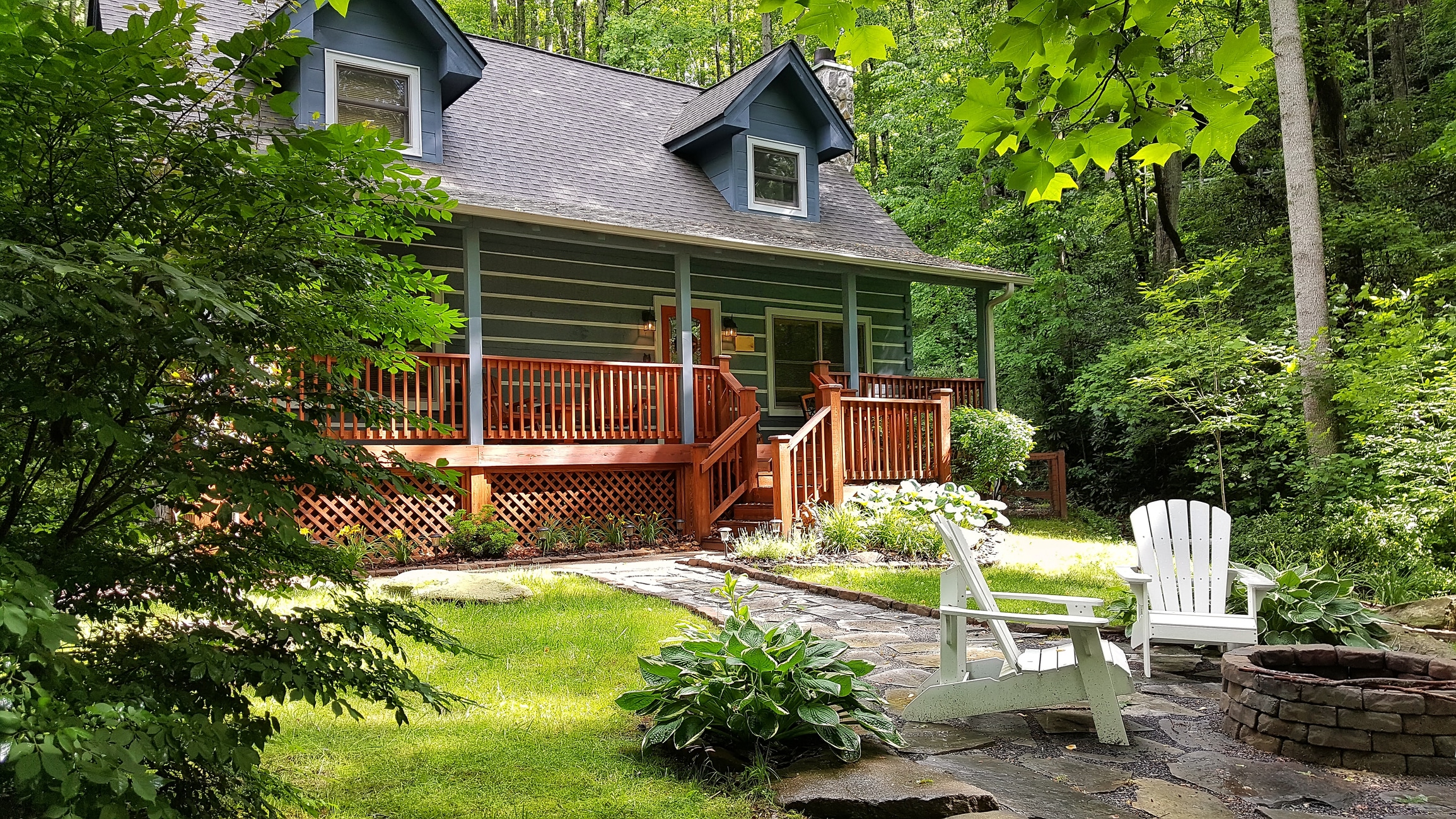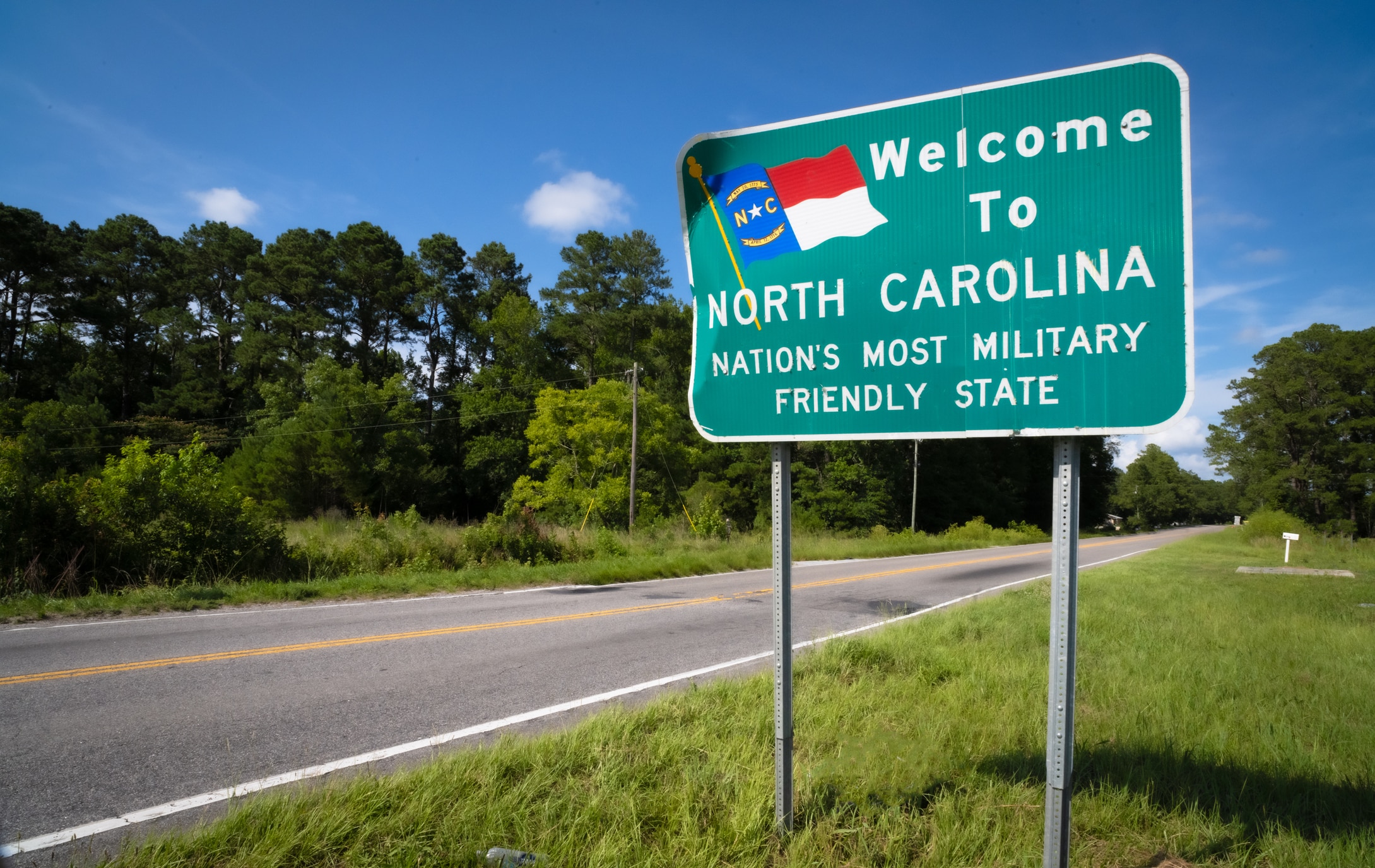(Updated October 30, 2024)
From breathtaking mountainscapes to bustling cities and serene beach towns, North Carolina has something for everyone. Entrepreneurs and the business-minded will appreciate the thriving tech and finance market, history buffs will revel in North Carolina's storied past, and sports fans and outdoor enthusiasts will find endless adventures (the Appalachian Trail runs right through the state). And get ready to savor the charms of the southern living — from mild winters and yummy, stick barbecue — without having to move to the Deep South.
Considering all the above, it’s no surprise you’re not the only one thinking of moving to North Carolina. Between 2020 and 2023 an estimated 376,000 people moved to N.C., and two of the state’s largest cities (Charlotte and Raleigh) ranked as a top 10 place to live in the United States.
But is North Carolina, which is known for its sweltering summers and active hurricane season as much as its affordable cost of living and vibrant cultural scene, a good place to live for you? Keep reading to discover if it’s the perfect fit for your next home.

What You Need to Know Before Moving to North Carolina
1. The cost of living in North Carolina is cheaper than other East Coast states
Food and housing prices are high across the country, but living in North Carolina continues to cost less than the national average.
Consider this: The average home in North Carolina is valued at roughly $330,000. That’s decent savings when compared to Florida and New York and their average home values of nearly $394,000 and $482,000, respectively. Renters moving to North Carolina can expect to pay between $1,300 for a one-bedroom and $1,500 for a two-bedroom, a savings of $200–$400 compared to average rents nationwide.
Families moving to North Carolina can also expect cheaper annual expenses. According to 2023 estimates, North Carolina families spent on average $51,000 on housing, health care, utilities, and other goods and services.
This means you could have a little more wiggle room in your finances if you are moving to North Carolina from a state with a higher cost of living.

2. The best cities in North Carolina are Charlotte, Raleigh, and Asheville
North Carolina’s most sought-after cities — Charlotte, Raleigh, and Asheville — are drawing new residents in droves. If vibrant amenities and nightlife are calling your name, here’s a quick guide to what each city has to offer.
Charlotte
Average home sale prices: $356,000 (close to the state’s average)
Average rental prices: $1,600
Charlotte isn’t just the largest city in North Carolina with a population of over 923,000, it’s also one of the most diverse cities in the U.S. It also happens to be the second-largest banking hub in the nation, second only to New York City. In addition to its economic strength and cultural diversity, Charlotte’s reputation for Southern hospitality and its enthusiastic sports culture have marked it as the top 5th place to live in the country, according to U.S. News & World Report.
Raleigh
Average home sale price: $441,000 (more than the state average)
Average rental prices: $1,500
As the state capital, Raleigh is where North Carolina’s government and policy decisions happen. It’s also a vibrant city for students and researchers, forming one corner of the state’s“research triangle,” alongside Durham and Chapel Hill. Raleigh is one of the fastest-growing cities, not just in North Carolina but in the U.S., with nearly 2% growth between 2022 and 2023. Big draws include live music venues and a whopping 40 craft breweries.
Asheville
Average home sale prices: $478,000 (more than the state average)
Average rental prices: $1,700
While Asheville is considered a top retirement city, it offers a dynamic setting for individuals of all ages. Nestled in the Blue Ridge Mountains, the quaint town is home to architectural wonders like the Biltmore Estate and the Basilica of Saint Lawrence. With the city’s stunning natural and thriving arts scene,living in Asheville means weekends packed with hiking and kayaking to art gazing, beer flighting, and concert going.

3. State income taxes in North Carolina are going down
As if the state weren’t affordable enough, state income taxes in North Carolina have dropped since a government change went into effect in 2022. As of 2024, North Carolina’s individual income tax rate is only 4.5%. Compare this to neighboring states like Virginia (5.75%) and South Carolina (6.4%). With so much tax savings, you could bring home more of your salary when living in North Carolina, and who doesn’t love that?
4. Storms are common in North Carolina but not always devastating
Because of North Carolina’s subtropical climate, it’s common for hurricanes, tropical storms, and even winter ice storms to sweep through the state. In most cases, these storms are short-lived, usually providing a minor inconvenience such as no power for a few days.
However, in some rare cases, these storms can be extremely devastating. Hurricane Helene, which hit in late September 2024, dumped record-breaking rain in western North Carolina. The aftermath was life-threatening flooding, widespread power outages, and communities in shambles.
Before moving to North Carolina, take these steps to ensure your new home is prepared for potential weather events:
Check if the property is in a flood zone, so you can see if flood insurance is needed and understand the potential impact to the resale value
Inquire into the home’s construction and remodel history, as this could reveal any previous storm damage or weak points
Inspect the home for reinforced windows and roof tiles as well as other storm-proofing elements
Research local emergency resources like shelters or other evacuation plans
None of the above is meant to scare you from moving to a North Carolina neighborhood that could be hit by a hurricane — many people choose to live in the Southeastern U.S. despite the occasional storm risks. What matters if you move to North Carolina is being informed and prepared in case you do need to secure your property or evacuate.

5. Businesses find support and growth in North Carolina
For two years in a row, CNBC named North Carolina as America’s #1 state for business. The award honors the state’s talent in attracting and investing in both growing and well-established businesses. Oh, and there’s also North Carolina’s reputation for having lowest corporate income tax — that may have something to do with over a dozen Fortune 500 companies, such as Honeywell and Lowe’s, keeping their headquarters in the state.
6. North Carolina colleges and universities are vibrant hubs for research and education
In addition to its business-friendly environment, North Carolina boasts a network of higher education institutions that play a crucial role in driving economic growth and innovation — including some of the top universities in the country:
Duke University: This private university in Durham ranks as the 6th best in the nation and is known for having the best cancer program in the Southeastern U.S., according to U.S. News & World Report.
University of North Carolina at Chapel Hill: For one of the oldest public institutions in the U.S., UNC is refreshingly modern with its emphasis on academic innovation, which has earned it the distinction of being ranked the 12th largest research university.
North Carolina State University: As one-third of the research triangle, NC State attracts students interested in engineering, science, and veterinary medicine.
North Carolina Agricultural & Technical State University: Out of Greensboro, A&T is the largest historically Black university in the nation and is known for its strong emphasis on its STEM (science, technology, engineering, and mathematics) programs.
Fayetteville State University: Another leading historically Black university, Fayetteville ranks among the "best value" schools in the state, thanks in part to the NC Promise program, a government-run initiative designed to make higher education more affordable at certain public universities in the state.
7. Weekend adventures await the whole family in North Carolina
If you believe life is better lived outdoors, moving to North Carolina might be for you. With 10 national parks and 41 state parks, the state offers abundant opportunities for outdoor adventures. Camp lakeside at a state park, sail in the Outer Banks, cheer on your favorite sports team, or sample wines from the state’s more than 250 vineyards (grapes thrive in North Carolina’s climate).
Sports enthusiasts will also enjoy cheering for the NFL Carolina Panthers, the NHL Carolina Hurricanes, and the NBA Charlotte Hornets, alongside a vibrant scene of collegiate and minor league sports teams.
8. Violent crime in North Carolina is increasing but still rare
While North Carolina is generally known for its safety, recent data in the state’s major cities indicates a rise in violent crime. Experts cite a rise in unemployment rates and financial hardship between 2023 and 2024 as possible causes. In Charlotte, NC, for example, the unemployment rate rose from 3.4% in August 2023 to 4.3% in August 2024.
This may raise concerns especially as rates of violent crime are decreasing in other parts of the nation. However, the chances of being the target of a crime in North Carolina are still rare when you consider most crime incidents occur in metropolitan areas, and other states have higher crime rates.

Pros and Cons of Living in North Carolina
Before moving to North Carolina and diving into your moving checklist, you’ll want to weigh each of the pros and cons of living in North Carolina.
Pros
Arguably, the most attractive pro of moving to North Carolina is the cheaper cost of living. The extra cash in your pocket could free up your budget for all the fun North Carolina has to offer, like hiking up Grandfather Mountain to taking in stunning views of the Blue Ridge Mountains. And if you’re looking to start a business, you’ll appreciate North Carolina’s business-friendly environment and low corporate tax rate, which can help turn your entrepreneurial dreams into reality.
Cons
Ah, but every Southern sweet tea has its sour note. The state’s occasional winter ice storms and wet tropical climate can be overwhelming for those more accustomed to mild weather in California, while those coming from New England may find it comfortably cooler. The rising crime could steer some away from the busier cities to the suburbs of North Carolina.
Moving to North Carolina FAQs
Is North Carolina a good place to live?
There are lots of reasons behind North Carolina’s rising population. The state’s economy is strong, you get to experience all four seasons, and there won’t be a dull moment if you live in or close to one of North Carolina’s cities. The occasional tropical storm probably won’t be a deal breaker if you’re used gto the harsh winters of, let’s say, Buffalo, New York. You may either tolerate the warm summers (which are known for their humidity, not their heat) or find them unbearable.
Is North Carolina a good state to move to?
If you’re thinking of relocating to a new state, North Carolina might just be the perfect state with its a less-than-average cost of living, affordable housing prices, and a long list of recreational activities.
What are the biggest risks of living in North Carolina?
The biggest risk of living in North Carolina is the severe weather events. While the devastation in the western parts of the state from Hurricane Helene may be a strong deterrent from moving to North Carolina, remember that these storms are considered once-in-a-lifetime events. More often than not, being prepared for storms allows many residents to bounce back within days.

Making the Move to North Carolina
If you’ve decided North Carolina’s mountain views, calming coasts, and diverse cities are the right fit for you — congrats on this new chapter! At Colonial Van Lines, we have experienced pros ready to provide full-service moving support for your North Carolina move. Whether you’re moving cross-country or the next state over, we’re here to help every step of the way with packing, loading, logistics, driving, and more. Get a free moving quote to start your move today!

